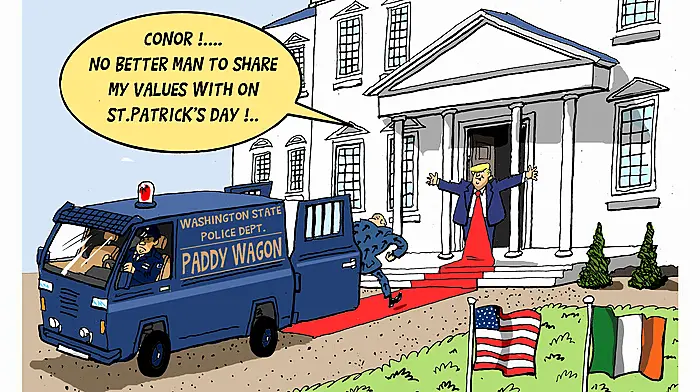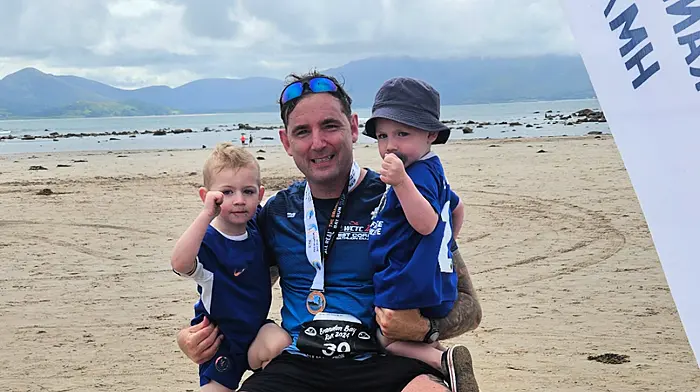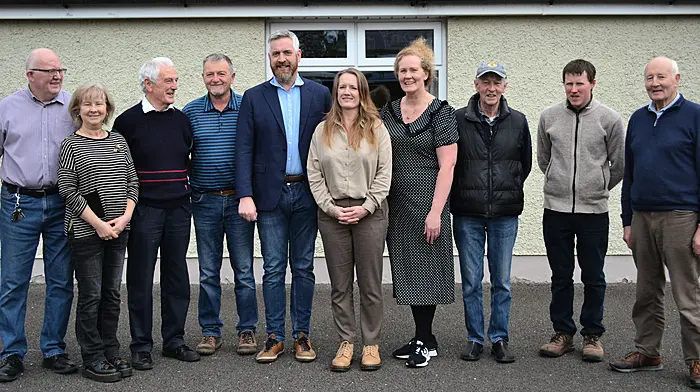WHILE we may look rather smugly across the Irish Sea at the shenanigans in Westminster, we shouldn’t be so quick to judge, because we have our own omnishambles happening right here.
The mess that has been created by the lack of planning for Ukrainian refugees came back to haunt us this week, with reports of tens of people fleeing war finding themselves with nowhere to go when they arrived in Dublin Airport.
Many were forced to sleep in the terminal and others found temporary respite on chairs in the CityWest transit hub or – worse still – walked the streets of our capital city until morning.
For a country that has had its own fair share of wars, we don’t seem to be able to grasp the concept of trauma, or ‘re-traumatising’ those fleeing horror.
As the Taoiseach Micheál Martin pointed out, we have a moral obligation to continue to accept refugees. But in confusing double-speak that even our friends across the sea would appreciate, within hours of that comment, we had our Tánaiste – and Taoiseach-in-waiting – Leo Varadkar saying we couldn’t guarantee accommodation for Ukrainians arriving here.
So we can’t say no to arrivals, but we might have nowhere to put them.
In a country that is relatively wealthy compared with other nations, and one that is sparsely populated, compared with many of our European neighbours, to think we cannot put a roof over the heads of those fleeing a brutal and unprovoked war, is a sad indictment of our reception and integration system.
Irish, EU and international human rights law requires us to provide ‘an adequate standard of living’ for those in receipt of reception conditions, which guarantees their subsistence and ‘protects their physical and mental health’.
Having war refugees walking the streets of a foreign and sometimes hostile city in the middle of the night does not exactly represent protection of their physical or mental health.
Perhaps if our State was presented with a legal challenge to its treatment of our visitors, it might move a little more quickly in securing safe accommodation.
Last March, the Minister for Integration, Roderic O’Gorman, in tandem with the Irish Red Cross, launched a national accommodation pledge portal to register potential accommodation for Ukrainian refugees. ‘Ireland stands in solidarity with all those fleeing Ukraine,’ he said at the time.
Last week the same minister was on the radio announcing that the CityWest transit hub had reached capacity, so some refugees might end up sleeping on the street. He offered no solutions.
Within hours, the national conversation had begun to query what happened to the thousands of people who had pledged rooms for Ukrainians – some for entire families.
It was reported last April that 24,411 people had registered at least one room with the Irish Red Cross. That would cover almost half of all those who have since arrived here from Ukraine, added to the thousands living in hotels and with other accommodation providers.
Something doesn’t quite add up. And while some of the vacant homes which were also pledged were deemed unsuitable, if we are now in a situation where the alternative is walking the streets at night, then surely an unsuitable home is better than none at all?
The issue of garda vetting was, at one point, blamed for the slow processing of applications. But when this paper asked the Garda Press Office to comment, we were told: ‘The DCEDIY [Department of Integration) have designated the Irish Red Cross as the relevant organisation to conduct vetting where hosts have pledged to share their home with these Ukrainian families. At this time any specific enquiries in relation to vetting should be directed to the Irish Red Cross.’
So the gardaí are not involved in the vetting process at all, it would seem.
It must then be asked if the Irish Red Cross is the correct organisation to be tasked with such a major and unprecedented mission – not just processing pledges, and matching homes with refugees, but also vetting families as well?
And the very people trained to deal with traumatised children, and who are already garda vetted – foster carers – are excluded from offering shelter to refugees.
This combination of factors may go some way to explain why we have found ourselves in these dire straits. The lack of any leading figure coming forward to grasp the nettle and sort it out before winter is properly upon us, is possibly the most upsetting element of the whole debacle.










